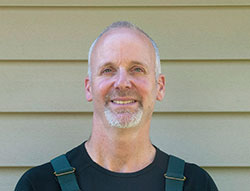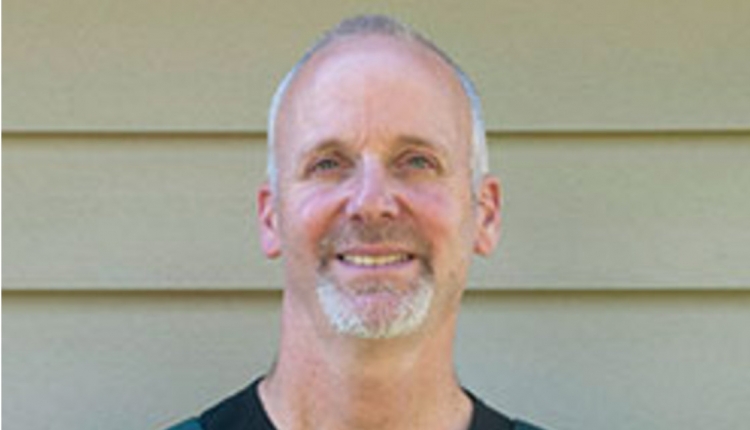The author is a partner and large animal veterinarian at Thumb Veterinary Services in Deckerville, Mich.

There have been a number of people in my lifetime who have exemplified character qualities that influenced me to strive to do my best in whatever pathway I chose. The added bonus I received from them was the “fleshing out” of what it looks like to physically invest time in people to make a difference in their lives. I can recall those who left an impression on me from very early on.
The earliest recollection I have of a teacher who left an impression on my young mind was my second grade teacher, Mrs. Furhman. My memory of her wasn’t about teaching us new math concepts that year, or broadening our knowledge of the world around us, or becoming more fluent in reading and writing. I’m sure she accomplished what she could in that area with me.
Make a difference
What really stood out in my mind was the time that she came to visit me in the hospital after I had my tonsillectomy. She even brought me a cold ice cream treat to soothe my sore throat! She made a special effort to invest her time in my young life.
Mr. Land, my tenth grade biology teacher, recognized the interest I started showing in his class. He would take extra individual time with me to make sure I understood what was being taught in our class. My uncle lived next door to Mr. Land. There were many occasions that Mr. Land would come over while my family was visiting. He was a man who understood that the investment of time, outside of the classroom, also made a positive difference.
One of my part-time jobs during high school was working on the dairy farm across from our home. Keith and Margaret Stroven, unbeknownst to me when I got hired on, became two of the most influential mentors I’ve had in my lifetime. It was during this time my father lost a two-year battle to cancer. Keith and Margaret definitely became family. This couple taught me the value of hard work, responsibility, and demonstrated a genuine concern for my future. They remain very close to me today. We still swap stories about the cows, the kids, and what is new.
During my college and veterinary college years, several other educators stand out in my mind as having displayed exceptional mentorship skills. Dr. Kohrman, my organic chemistry professor (and fellow avid fisherman) further developed the realization that dedicated effort leads to success in many areas of life.
Also, during my vet school clinical experience at Michigan State University, Kent Ames was a believer of possessing a positive attitude and also a promoter of bestowing affirmation following those several years of hard class work. Dr. Ames has displayed such a positive learning experience to countless veterinary students for over four decades.
I’m sure that all of you, too, can fondly remember those “standout” mentors who have had a part in your lives. Mentorship is an integral thread that is needed to encourage or change vocation pathways, redirect business strategies, bring families together. It’s investing that time involvement with people, but it reaps benefits.
Mentorship has benefits
Our practice has been actively participating in structured mentorships for many years. Some of our retired clients might remember a young vet student “Mark,” who they helped mold into this now-seasoned veterinarian. Back then, I had a full head of curly dark hair (just a memory now), a tank full of energy, and a strong desire to learn!
My mentoree experience was a large piece of my veterinary education. But my education continues on, in part, through actively mentoring vet students we host today.
Time spent working together allows knowledge through 30-plus years of practice to be shared with our students. I have enjoyed the opportunity to infuse into them the knowledge that I’ve gained, along with introducing them to this great industry, of which has been a privilege to work for.
I have discovered that being on the “mentor” side of learning has been very rewarding. It’s involved a large dose of added education for me, but sprinkled from time to time with smaller doses of just plain amusement and bantering.
These student ride-alongs have caused me to sharpen my listening skills. That hour drive between farms gives me ample time to “pick their brains” about interesting cases. There are no distractions for me during those times, so I make it a priority to encourage a “round table discussion” for two. It’s important for them to reason out challenging cases.
We each can, then, share our observations, but it was beneficial for me to allow them to “ruminate” on what they observed, in order for the student to gain knowledge through reasoning it out rather than being lectured. And valuing their opinions concerning cases boosts their self-confidence. Several of our young associates have taught me valuable insights and new procedures on a variety of dairy cases.
Interpersonal skills is an area that I consider to be vitally important because it can speak volumes about how much we care when it comes to dealing with our clients. These new students are used to dealing with real cows on campus settings, but now they are dealing with cows, owned by real clients.
My exchanges of communication back and forth with our clients need to always convey genuine interest, concern, and positivity. The students witness this throughout their clinicals with us. The goal is for them to grasp how important it is for them to treat their own clients (and their clients’ cows) with respect and, ultimately, deciding upon the appropriate treatment for the health of their herds.
My role as a mentor in the dairy industry continues because it keeps me on my toes with all the changes our industry has seen and will continue to go through. It gives me that added affirmation that being a dairy vet is still one of the greatest professions out there when we get these bright-eyed, energetic students or new associates come through our doors, ready to “tackle the world” with their enthusiasm. I was one of those students, and my ride-along preceptorships were molded into my life-learning lessons.
Students benefit as well
When zealous vet students arrive at our practice, typically they are a bit “jacked up.” Trying to carry out the introductions within our group of a dozen veterinarians, plus all the techs and office staff, is rather daunting. So, the coffee cups get filled and the welcoming starts. As is the case at most practices, our group displays a tremendous variety of interpersonal communicational styles. Some of us love the crack of dawn and assume everyone does, so we naturally ramp up the volume, while those on the “other side” intently sip their coffee, tolerating our behavior. And, of course, we wouldn’t be a well-rounded staff without a couple of tormentors for our new students to use their interpersonal skill on. It’s all a part of the education!
My wife and I housed a vet student from the Netherlands just a few weeks ago. Marcel took turns riding with each of our large animal veterinarians, and each evening he’d return back to our home with a huge smile and the first words out of his mouth were always, “It was a really goot day!”
Dinner time around our table involved discussions about client and veterinarian conversations, talking over how certain medical histories were taken, exchanging thoughts concerning medical decisions that had been made. It was important for Marcel to be able to come to conclusions and to speak his mind, knowing I was listening and taking in what he was communicating with me. And when he and I would examine issues back and forth, it educated him on how to accept my feedback, also.
We notice a “big jump” after several days with most of our students. They become more self-confident and able to speak up because they now see that their opinion matters. After experiencing several days of farm calls, these students also learn to relax a bit and work on building communication skills with the farmer and others within the industry, too. They observe the teamwork that is involved in making these operations successful. And they better understand how crucial that is to the successes of the food animal industry.
Our large animal veterinarians gather for coffee and breakfast on Thursday mornings before the day’s calls begin. This is our weekly time to get together as a group and engage in round table discussions concerning any perplexing or interesting cases. People from the industry have come to speak on numerous occasions, also.
Our students and new associates witness the importance of staying connected to all the facets of the large animal industry and the need to keep on the “cutting edge” of new information. When we do have students with us, we try to make it a low-key atmosphere, allowing them to engage in the discussions.
Audrey, a super bright student, thrived on being challenged by the biological discussions of recent cases. She also excelled in baking. We were all over that! The 6-month-old Post Raisin Bran cereal never made it out of the cupboard! Audrey, along with Marcel, and many other students who have come through our doors, were always so enjoyable to listen to as they pondered and discussed, what they believed was the biology of, let’s say . . . dry cow acidification diets. Many times, we found it refreshing . . . and slightly entertaining! Learning under our veterinarians and having invested a small part of their personal lives in us has, many times, resulted in our clinic being a networking contact for them, also.
How about you?
The dairy life, which you embrace daily, is a perfect “classroom” to mentor. The opportunity is available for you to take advantage of, and it can make a very positive difference in their lives. Dairy farms require a healthy work ethic. Dedicated attention and care have to be given to these amazing animals. It’s to your advantage to take that extra time to develop the skills that successful mentoring involves.
It really is about developing respectful relationships between the mentor and the mentoree or you and those who work for or with you. Throughout my life, as I have endeavored to learn under great teachers and colleagues, I’ve gained so much valuable information.
But I know without a doubt at this point in my life as a seasoned veterinarian, what I have truly gained through meeting and forming many relationships over the years far outweighs any educational data I’ve loaded up on. Investment in people (family or others) is a great privilege, and I feel honored to have been a small part of making a difference.








